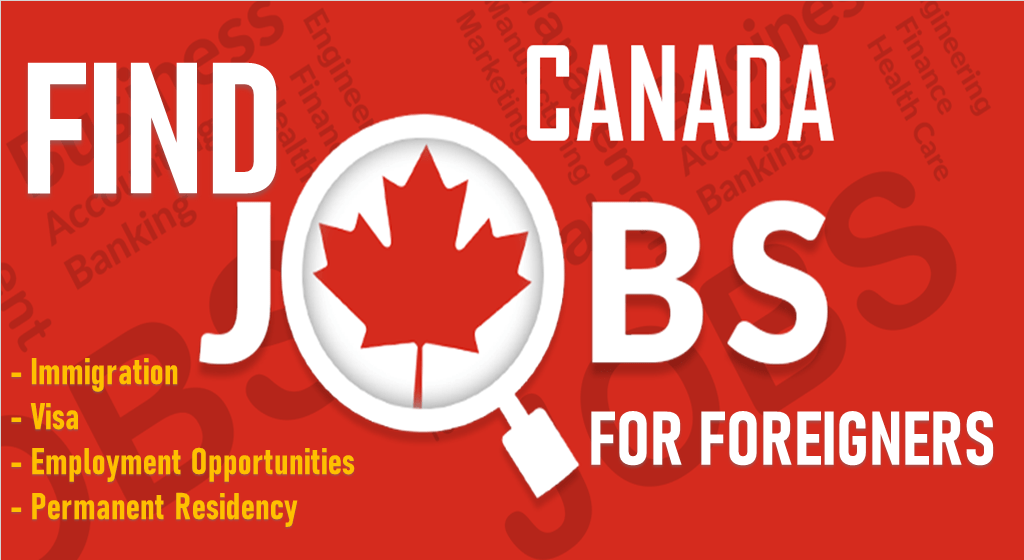Advertisements
Top-paying Canadian jobs span a variety of industries and sectors, reflecting the diverse opportunities available in the country’s robust economy. These positions attract professionals from around the world seeking competitive salaries, excellent benefits, and career advancement prospects. Below is an extensive overview of some of the top-paying Canadian jobs across various fields:
Medical Specialists:
Medical specialists, including surgeons, anesthesiologists, and psychiatrists, are among the highest-paid professionals in Canada. Their expertise and critical roles in healthcare command substantial compensation.
Chief Executive Officers (CEOs) and Senior Executives:
CEOs and senior executives lead organizations, overseeing strategic planning, operations, and decision-making processes. Their leadership positions come with significant responsibilities and lucrative compensation packages.
Information Technology (IT) Managers and Directors:
In today’s digital age, IT managers and directors play pivotal roles in managing technology infrastructure, cybersecurity, and digital transformation initiatives. Their expertise is highly valued, resulting in competitive salaries.
Engineering Managers:
Engineering managers lead teams of engineers, overseeing project development, budgeting, and resource allocation. Their technical expertise and leadership skills contribute to their high earning potential.
Pharmacists:
Pharmacists play crucial roles in healthcare, dispensing medications, providing patient care, and ensuring medication safety. Their specialized knowledge and responsibilities command high salaries.
Lawyers:
Lawyers provide legal counsel and representation to individuals, businesses, and organizations. Their expertise in navigating complex legal matters earns them substantial compensation.
Petroleum Engineers:
Petroleum engineers are instrumental in the extraction, production, and refining of oil and gas resources. Their technical expertise in the energy sector results in high-paying opportunities, particularly in regions with significant oil and gas reserves.
Financial Managers and Directors:
Financial managers and directors oversee financial operations, including budgeting, investments, and financial reporting. Their strategic financial management skills contribute to their high earning potential.
Airline Pilots and Flight Engineers:
Airline pilots and flight engineers operate aircraft, ensuring the safety and efficiency of air travel. Their specialized skills and responsibilities in the aviation industry lead to lucrative compensation packages.
Dentists:
Dentists provide oral healthcare services, including preventive care, diagnosis, and treatment of dental conditions. Their expertise in dentistry commands high salaries in Canada’s healthcare sector.
These are just a few examples of top-paying jobs in Canada, representing a range of industries and professions. The country’s strong economy, diverse job market, and high standards of living attract skilled professionals seeking rewarding career opportunities. Additionally, factors such as experience, education, location, and industry demand can influence salary levels within each profession.
Top Paying Canadian Jobs
Canada presents an array of lucrative job opportunities, making it an appealing destination for individuals seeking career advancement or new prospects. In addition to its stunning natural landscapes and universal healthcare system, the country boasts a thriving economy with numerous well-paying roles that do not necessarily require a university degree.
One avenue worth exploring is skilled trades such as plumbing, welding, or carpentry. Skilled tradespeople are consistently in demand in Canada, often earning upwards of $70,000 annually. To enter this field, individuals typically complete an apprenticeship program lasting 2 to 5 years, with many community colleges offering relevant programs to kickstart their journey.
Advertisements
Alternatively, a career in technology, such as becoming a web developer or UX designer, can lead to substantial paychecks in Canada, with average salaries exceeding $75,000. Aspiring tech professionals can acquire the necessary skills by learning programming languages, building a robust portfolio, and staying abreast of the latest web technologies through coding bootcamps and online courses.
For those inclined towards hands-on work, pursuing a career as an electrician can be a lucrative option. Electricians are responsible for installing and maintaining electrical systems in residential and commercial settings, with the potential to earn $65,000 or more annually after a few years of on-the-job training. Job prospects for electricians in Canada are particularly favorable.
Other high-paying pathways include roles such as dental hygienists, massage therapists, and respiratory therapists, which require completing diploma or certification programs and accumulating practical experience. While these jobs may demand technical skills, they do not necessarily require traditional four-year degrees, making them accessible to a wider range of individuals.
In addition to the aforementioned options, Canada offers lucrative positions in various fields:
- Heavy Equipment Operator: Operating heavy machinery like cranes, bulldozers, and excavators can yield substantial earnings, with an average salary of $73,000. Training programs typically last 6 to 12 months.
- Power Engineer: Operating and maintaining equipment providing power, heat, and air conditioning can fetch an average salary of $80,000. Power engineers must complete a training program at a technical institute, resulting in a certificate or diploma.
- Elevator Mechanic: Installing, maintaining, and repairing elevators, escalators, and lifts can lead to an average annual income of $86,000. This profession requires a 4-year apprenticeship program, including on-the-job training and technical courses.
- Crane Operator: Controlling tower cranes and mobile cranes at construction sites can secure an average salary of $73,000. Aspiring crane operators typically complete a training program at a vocational school or community college, lasting 6 to 18 months.
How To Apply for High-Paying Jobs in Canada
Applying for high-paying jobs in Canada requires a strategic approach and attention to detail. Here’s a step-by-step guide to help you navigate the application process effectively:
- Research Job Opportunities: Begin by researching the job market in your desired field. Identify high-paying job opportunities that align with your skills, qualifications, and career goals. Use online job boards, company websites, professional networking platforms, and industry-specific publications to explore available positions.
- Review Job Requirements: Carefully review the job descriptions and requirements for each position of interest. Pay attention to qualifications, skills, experience, and any other specific requirements outlined by employers. Make sure you meet the criteria before applying.
- Update Your Resume: Tailor your resume to highlight your relevant skills, qualifications, and experiences that align with the job requirements. Customize your resume for each application, emphasizing your achievements, certifications, and any specialized training that sets you apart from other candidates.
- Write a Compelling Cover Letter: Craft a personalized cover letter that showcases your enthusiasm for the position and explains why you’re the ideal candidate. Highlight your key qualifications, experiences, and achievements, and demonstrate your understanding of the company and its industry.
- Create an Online Profile: Create a professional online presence by updating your LinkedIn profile and other professional networking sites. Ensure that your profile is complete, including a professional photo, summary, relevant skills, and work experience. Actively engage with industry professionals and recruiters to expand your network.
- Apply for Jobs: Once you’ve identified suitable job opportunities and prepared your application materials, proceed to submit your applications. Follow the application instructions provided by each employer, whether it’s through an online job portal, email, or their company website. Double-check your application for any errors before submission.
- Prepare for Interviews: If you’re selected for an interview, prepare thoroughly by researching the company, understanding the job role in detail, and practicing common interview questions. Showcase your knowledge, skills, and enthusiasm during the interview, and be prepared to discuss your qualifications and experiences in depth.
- Follow Up After Interviews: After each interview, send a thank-you email to the interviewer expressing your gratitude for the opportunity and reiterating your interest in the position. Follow up with the employer within a reasonable timeframe to inquire about the status of your application.
- Negotiate Salary and Benefits: If you receive a job offer, carefully review the terms and conditions, including salary, benefits, and other perks. Consider negotiating for a higher salary or additional benefits if appropriate, based on your qualifications and industry standards.
- Accept the Job Offer: Once you’re satisfied with the terms of the job offer, formally accept the offer in writing and confirm your start date. Express your appreciation for the opportunity and enthusiasm for joining the company.
By following these steps and staying proactive in your job search, you can increase your chances of securing high-paying job opportunities in Canada. Keep refining your skills, expanding your network, and staying informed about industry trends to remain competitive in the job market.
Advertisements






